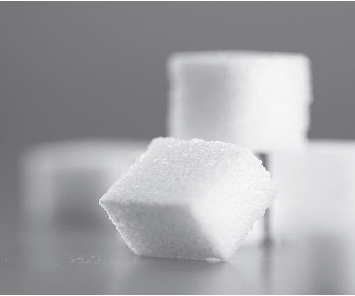Guidelines about dietary sugar (and salt and exercise) fall short.
Institutional guidelines rarely improve health. Sorry for that. Although the sugar guideline is a step in the right direction, lobby interests will likely win out. Let me explain.
The World Health Organization (WHO) in 2012 recommended that all people should limit their “sugar” intake to less than 10% of their total caloric intake. Be it known that the U.S. threatened to pull funding from the WHO because of this moderate 10% recommendation presumably due to pressure from food processing industries. Now the WHO proposed a conditional limit of 5% of total calories from “free sugars”: monosaccharides and disaccharides added to foods, as well as sugars that are naturally present in honey, syrups, fruit juices, and fruit concentrates. The guidelines do not include the simple sugars in fruits or dairy products.
The math of guidelines and why less is more?
For an adult consuming 2500 calories daily, the 5% guideline means consuming no more than roughly 8 teaspoons (32 g) of sugar daily — which is less than the amount of sugar in a soda. But let’s look toward Step Three of The Blood Code, if you have severe insulin resistance (IR), the 32 gram sugar allowance means that all of your carb calories would come from simple sugar instead of vegetables since the daily carb range for people with type 2 diabetes and blood test results that indicate severe IR is 25-40 grams per day.
Administrative guidelines are a statistical attempt to alter a bell curve. And while big numbers can change, health outcomes usually fall short for those who really need it.
Remember salt and exercise?
In The Blood Code: Unlock the secrets of your metabolism, I went through the salt debate and came to the same conclusion. Those that really need to reduce their salt intake will not benefit from a 1500 mg reduction of salt – which remains a medical guideline for the masses. And 150 minutes of aerobic exercise weekly? This was a gold standard medical recommendation for the past 30 years and it isn’t adequate for people that need to turn their metabolism around.
Then what are the rules?
Don’t smoke. That one is clear and absolute. After that, you must learn about yourself, what is your Blood Code? And what habits work for you to recover and live in your metabolic sweet spot. Thanks for allowing me to help guide your journey.




Dear Richard,
Thank you for writing the Blood Code! Already I have learned so much. I hope my boyfriend & I can make it to your book signing in Freeport next Sunday.
The distance between Rockland & Portland is not doable for me to plug into your exercise classes. Once I gain more stamina, I trust I will be able to check in with you in person from time to time. Meanwhile, I am loving this spring weather & the outdoor exercise opportunities it offers.
I wonder how to access recipes on the website. As I near my 67th birthday, I am more-than-ever determined to live fully & in good health. No way do I buy into the endocrinologist’s belief that my thyroid will eventually stop functioning all together due to Hashimoto’s! Thank you for your inspiration!
Blessings to you & your family,
Jane Welch